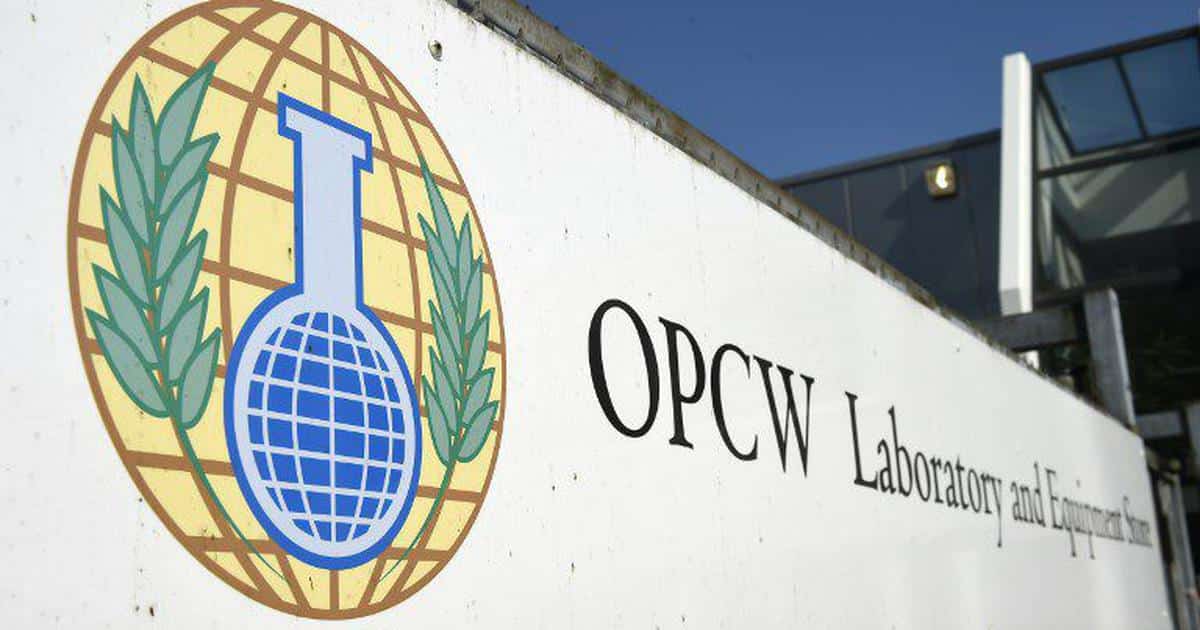About Organisation for the Prohibition of Chemical Weapons (OPCW):
- It is the implementing body of the Chemical Weapons Convention (CWC).
- Mission: To implement the provisions of the Chemical Weapons Convention (CWC) in order to achieve the OPCW’s vision of a world that is free of chemical weapons and of the threat of their use, and in which cooperation in chemistry for peaceful purposes for all is fostered.
- Its headquarters are located in The Hague, Netherlands.
- The OPCW receives states-parties’ declarations detailing chemical weapons-related activities or materials and relevant industrial activities.
- The OPCW is authorized to perform inspections to verify that signatory states are complying with the convention.
- It also performs testing of sites and victims of suspected chemical weapons attacks.
- OPCW reports on its inspections and other activities to the UN through the office of the secretary-general.
- The OPCW was awarded the Nobel Peace Prize in 2013.
Chemical Weapons Convention (CWC):
- It is a multilateral treaty that bans chemical weapons and requires their destruction within a specified period of time.
- It entered into force on April 29, 1997.
- The CWC requires states-parties to declare in writing to the OPCW their chemical weapons stockpiles, chemical weapons production facilities (CWPFs), relevant chemical industry facilities, and other weapons-related information.
- The CWC is open to all nations and currently has 193 states-parties.
Q1) When were Chemical weapons first used in modern warfare?
In modern warfare, chemical weapons were first used in World War I (1914–18), during which gas warfare inflicted more than one million of the casualties suffered by combatants in that conflict and killed an estimated 90,000.
Source: Chemical weapons watchdog blames Syrian air force for Douma attack
Last updated on June, 2025
→ UPSC Notification 2025 was released on 22nd January 2025.
→ UPSC Prelims Result 2025 is out now for the CSE held on 25 May 2025.
→ UPSC Prelims Question Paper 2025 and Unofficial Prelims Answer Key 2025 are available now.
→ UPSC Calendar 2026 is released on 15th May, 2025.
→ The UPSC Vacancy 2025 were released 1129, out of which 979 were for UPSC CSE and remaining 150 are for UPSC IFoS.
→ UPSC Mains 2025 will be conducted on 22nd August 2025.
→ UPSC Prelims 2026 will be conducted on 24th May, 2026 & UPSC Mains 2026 will be conducted on 21st August 2026.
→ The UPSC Selection Process is of 3 stages-Prelims, Mains and Interview.
→ UPSC Result 2024 is released with latest UPSC Marksheet 2024. Check Now!
→ UPSC Toppers List 2024 is released now. Shakti Dubey is UPSC AIR 1 2024 Topper.
→ Also check Best IAS Coaching in Delhi






















